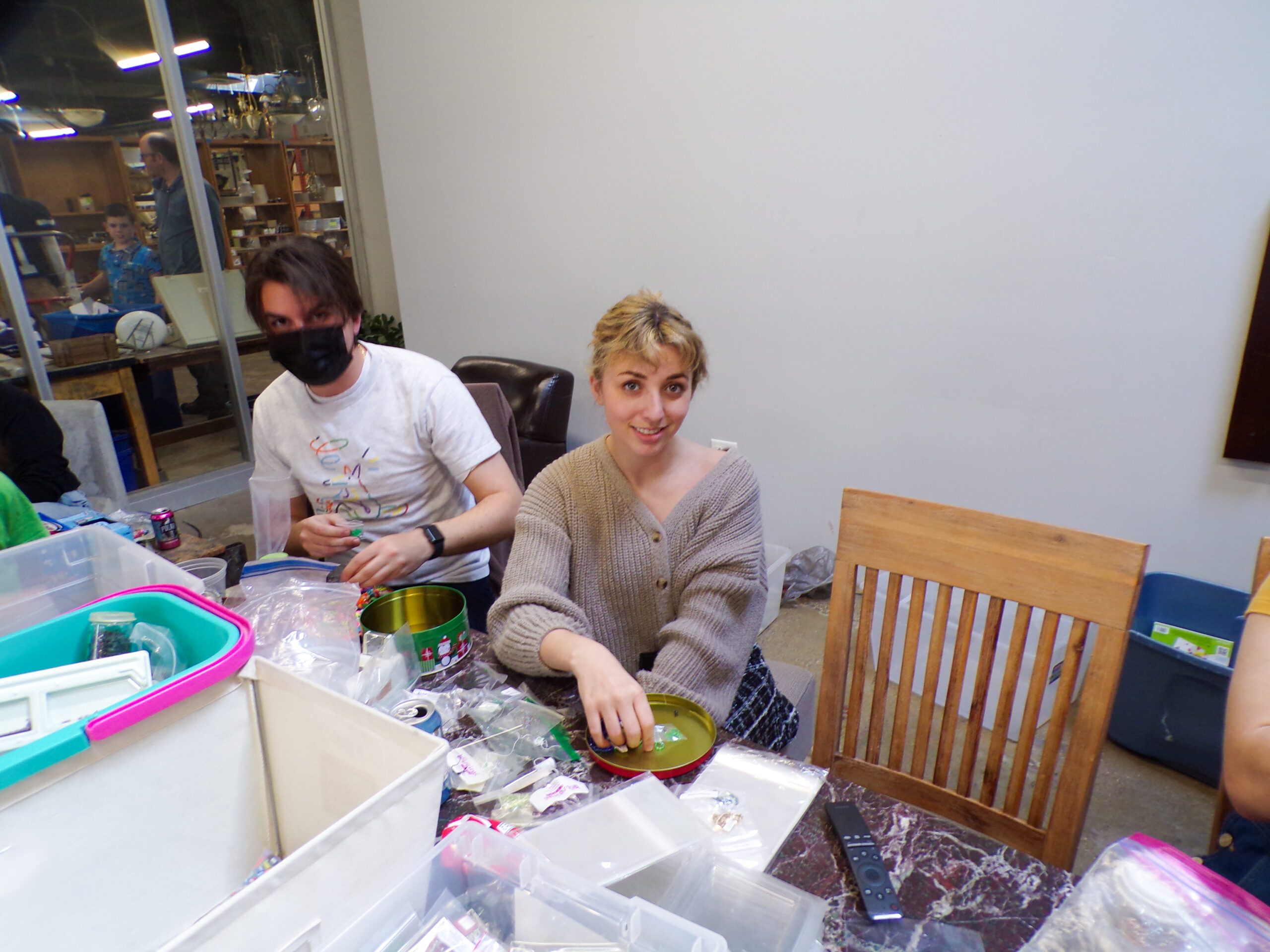Loyola has almost $300 million in investments located overseas, allowing the university to avoid paying unrelated business income tax on the funds.
Loyola held nearly $300 million in endowment investments, including stocks and other securities, located outside of the United States during the fiscal year 2021 (FY21) mostly in the Caribbean and Central America.
Loyola University Chicago is a tax-exempt nonprofit corporation registered in Illinois. However, despite this status, the university is still subject to paying unrelated business income tax (UBIT). The Internal Revenue Service (IRS) defines UBIT as a tax on income brought in by tax-exempt organizations from a trade or business not related to the charitable, educational or other purpose of the organization.
In December 2022, Katharine Wyatt, Loyola’s chief investment officer, told The Phoenix in an email Loyola keeps these investments located overseas to avoid paying UBIT.
“As a tax-exempt [nonprofit] institution, we have several investments domiciled offshore which gives us exemption from incurring unrelated business income tax (UBIT) and from general taxation due to trading safe harbor statutes,” Wyatt wrote. “Although domiciled outside of the US, these funds trade various securities, both in the US and globally.”
During FY21, Loyola had $252.8 million domiciled in Central America and the Caribbean, $27.9 million in Europe and $18.8 million in East Asia and the Pacific.
In the same year, Loyola accrued $33.4 million in revenue less expenses or total profit, despite being a nonprofit, according to the FY21 990. Loyola also recently announced a 4.5% undergraduate tuition increase, continuing the pattern of yearly tuition increases but with the largest increase in nearly a decade, The Phoenix previously reported.
Evading taxes using offshore investments is legal as long as the investments are properly reported, according to the IRS. Despite this, offshore tax evasion remains a consistent addition on the IRS’ annual “Dirty Dozen” list of tax scams.
The Form 990 is an annual report filed with the IRS and is their main tool for gathering information and promoting compliance with tax-exempt organizations like Loyola, and the Form 990-T is the annual report filed by tax-exempt organizations with the IRS to determine and report their UBIT, according to the IRS.
Loyola first offshored funds 15 years ago in 2006, according to the FY06 990. 2006 was the first time the university answered yes to whether Loyola has an interest, signature or authority over a financial account in a foreign country.
From 2007 to 2008, the investments were held in the United Kingdom (UK) and Italy, according to the FY07 990 and FY08 990-T. Between 2009 and 2013, the investments were either domiciled in the UK, Italy, Vietnam and the Cayman Islands or just the UK, Italy and Cayman Islands, according to the FY09, FY10, FY11, FY12 and FY13 990-T.
The investments are currently held in the UK, Italy and Vietnam and have been since 2014, according to the FY14, FY15, FY17, FY18, FY20 and FY21 990-T and FY16 and FY19 990.
These offshored securities are wrapped up in Loyola’s endowment fund. A university endowment refers to money gathered from donations and invested to be typically used to fund a variety of university operations, including scholarship support and research efforts, according to the American Council on Education. As of June 2022, Loyola’s endowment adds up to $1,004,715,000 in total assets, according to the university’s publicly released financial statement.
The UK is Europe’s top tax haven because of its relatively low corporate tax of 19% and lack of income or capital gains taxes on foreign held investments, according to Investopedia. British Overseas Territories, particularly the Cayman Islands — where a significant portion of Loyola’s offshored assets are located — are also exceedingly popular tax havens because they lack any income, property, capital gains, payroll or withholding taxes but have strict financial privacy laws, according to Investopedia.
In 2021, the majority of Loyola’s investments were domiciled in the Caribbean and Central America while the only countries Loyola reported a financial account in were the UK, Italy and Vietnam. Despite domiciling hundreds millions of dollars in The Cayman Islands Loyola hasn’t disclosed a financial account there since 2013.
During FY21, Loyola received almost $70 million in state and federal government grants funded with taxpayer dollars. From 2016 to 2020, the university collected over $370 million in government grants, The Phoenix previously reported.
Loyola has two study abroad campuses, the John Felice Rome Center in Europe and the Vietnam Center in East Asia. There are distinct amounts besides the investments listed on the FY21 990 in East Asia and the Pacific and Europe as “PROGRAM SERVICES” and specified as for “STUDY ABROAD CAMPUS.”
There is $345,764 in East Asia and the Pacific for a study abroad campus and $6.7 million in Europe for a study abroad campus filed separately from the investments in the same regions.
In the December email to The Phoenix, Wyatt previously said this practice of domiciling investment funds overseas is not a new practice for nonprofits.
“The use of these structures is a very common and typical structure for tax-exempt nonprofits,” Wyatt wrote. “It has been in place for many years, even decades. I don’t know when Loyola first started using these, but tax law has provided for these sort of vehicles for tax-exempt institutions for a long time.”
Wyatt declined to speak again with The Phoenix about the investments, instead reiterating these kinds of investments are standard practice for tax-exempt organizations like Loyola.
Wayne Magzdiarz, Loyola’s senior vice president, chief financial officer and chief business officer, declined to speak with The Phoenix about the investments, referring to Wyatt’s previous statement and not commenting further beyond repeating how this is a typical practice.
Representatives from the University Marketing and Communications office did not respond to The Phoenix’s requests for comment.
Some nearby tax-exempt universities do employ these methods but several also don’t. DePaul University, Marquette University and Roosevelt University don’t offshore investments or report investments as offshored, according to their FY20 990s.
The University of Chicago offshored more than $3.5 billion in investments in 2020, according to their FY20 990. Northwestern University offshored more than $3 billion in investments in 2018, according to their FY18 990. The University of Illinois also offshored almost $500 million in investments in 2020, according to their FY20 990.
The University of Chicago domiciled their investments in 25 countries including China, Brazil and the UK, according to their FY20 990-T. Northwestern University sheltered their investments in Qatar and the UK, according to their FY20 990-T. The University of Illinois placed their investments in 20 different countries including Israel, China and Russia, according to their FY20 990-T.
Representatives from all six universities did not respond to requests for comment.
Featured Image by Holden Green | The Phoenix
-

Hunter Minné wrote his first article for The Phoenix during just his first week as a first-year at Loyola. Now in his third-year on staff and second as a Deputy News Editor, the Atlanta-native is studying journalism, political science and environmental communication alongside his work at the paper. For fun he yells at geese.
View all posts -

Griffin Krueger is the Editor-in-Chief of The Phoenix. He began working for The Phoenix during his first week at Loyola and has been writing about the university, the surrounding community and the city of Chicago ever since. Krueger previously worked as Deputy News Editor and Sports Editor and is a fourth-year studying political science with a minor in history. Originally from Billings, MT, he enjoys reading and exploring the city on his bike.
View all posts











